
|
|||||||||||||||||||||
 |
|||||||||||||||||||||
 |
||||||||||
|
||||||||||
|
The current issue is always free to everyone If
you need the access available to a |
||||||||||
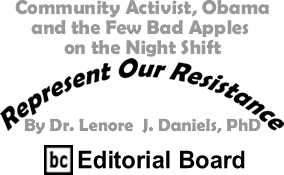 |
||||||||||
 |
||||||||||
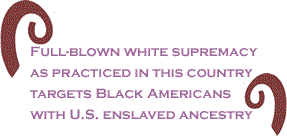 |
||||||||||
In this country, the U.S., obsessed with race and blood, certain minds devised insidious ways to classify human beings as something other than themselves. Resembling white America, that is, assimilating to another’s social, cultural, and economic values, could get you social, cultural, and economical breaks in life. It was much easier if you were descendent from a mulatto mother or father. To not be a descendents from American slavery is even better! As Toni Morrison wrote, at one time, if an immigrant to the U.S. could pronounce the word, nigger - he or she would instantly become an American citizen. So goes the “grassroots” understanding of how race operates in the U.S. No one comes to the U.S. and wants to be a Black American, that is, truly embraces the Black American experience of struggle and oppression! Nice to sing some hip songs and shout “Yo,” but it’s another thing to be treated Black by white and privileged immigrants. This is the heritage of brutal struggle and oppression in the face of Anglo American control of social and economic conditions, as well as the narrative surrounding the Black American experience in America. People of color, Europeans and Eastern Europeans come to America and eventually assimilate to whiteness. The closer an immigrant of color looks, sounds, and thinks like an Anglo American, the better it will be for that individual, despite the fact that U.S. imperialism utilizes the labor of that individual’s people and kills for what it wants from that individual’s homeland. Until recently, Africans visiting or living in the U.S. used to be considered by whites to be “exotic.” It is not PC to verbalize that distinction anymore. Africans experience color prejudice and they, along with other immigrants, experience from whites and even some Blacks that prejudice of being different, as in foreign. But full-blown white supremacy as practiced in this country targets Black Americans with U.S. enslaved ancestry. It is what white America sees when it looks into the face of a Black American with enslaved ancestry.
It is this history that it wants to forget because it needs to forget. It is this history that can’t receive the benefit of years of reconciliation and reparations because it would mean equality and justice, freedom and democracy. What it can’t come to grips with, what it can’t confront, it sees in the face of a Black American with slave ancestry. White America’s resistance struggle meant 150 years of more violence - lynching and raping and establishing law after law that would segregate and make it impossible for Black Americans to lift themselves up in the morning. Nixon and Reagan, particularly the latter, said to white America - I understand our problem and will work to eliminate it by eliminating the symbol: the Black American. We will spiritually and culturally maim their minds and the minds of their children, incarcerate their bodies in metal and geographical cells, and stifle their collective posture of opposition. In short, we will stomp them to a pulp and bury them alive! The atmosphere of “reconciliation” will focus around “militants” and “agitators” whom we will engulf in chilling frost so that would-be “militants” and “agitators” are frozen in their tracks. War will be peace, freedom will be slavery, and ignorance will be strength. If any of the ordinary Black citizens should want to escape this torture, they will have to come to us, crawling, willing to submit to our think tanks for the re-education process. The “thought” of reparations, of slavery, of white American violence will be considered inappropriate language subject to denunciation of the speaker. Resistance, on the part of Black Americans is futile because, according to our textbooks and newsprint, it will be absurd. Only idealists, crazies, still insist on a distinction between the narrative of liberation and the narrative of white supremacy.
Those of us who have been Black in this country for a long time know this feeling of apprehension. The gloves will be off! Controlling internal “insurgents” will be an open task of federal and local teams working in “unity” domestically and in so-called “foreign” lands of U.S. occupation. As an advanced configuration of imperialism, the U.S. has worked to contain opposition to its goal of sustaining Empire. So when anything like Rodney King or Jena 6 happens, when Black Americans with a slave ancestry are rounded up and find ourselves in detention camps, will newspeak attribute it to “a few bad apples on the night shift” while they throw away the keys? I am wondering if we are not being taken back to the days of Reagan just a bit, just enough to justify an all-out rounding up of “militants” and “agitators” - again This time, the face of Reagan will be Black, someone who stirs of that obsession for the “exotic” Black face with Nordic features, who sounds like white America and even utters the slogans of an American brand of totalitarian regime: War is peace, freedom is slavery, ignorance is strength. I think of community organizing in Chicago, and I think of dimly-lit places, with squeaky, dark-wooden floors, old wooden, scratch-marked desks, and chairs that had to be tested because there always seemed to be more broken chairs than not in these rooms. There was always the smell of dust. Cold in the winter and humid in the winter, we learned not to complain. We understood that we had to take whatever was available. We were the Youth Division of Operation Breadbasket in late 1969 and 1970 and the organization Breadbasket itself, before and after it broke from the Rev. Ralph Abernathy’s SCLC. We boarded raggedy school buses to protest at the Capitol building in Springfield and rode on buses or whatever cars were available to march downtown on State Street for a first Black school president or to boycott a store. I came to understand that community organizing meant organizing to agitate. Organizing to agitate also meant meeting in less than comfortable places and always involved the risk of interaction with the police or some form of white authority (and its surrogate Black figures) who would stand opposed to any activity intended to unite, organize, and teach Black Americans. In later years, I remember one non-profit or community center room after another. We had to work in cramped spaces with limited material and financial resources. If I received a salary, it was just enough to pay for an apartment where the rent couldn’t be higher than $475 a month. I remember the Federal Building rallies and the door-to-door petition drives. I remember writing for small neighborhood publications for no pay or teaching GED or adult continuing education where students were in need of basic assistance that fell to us teachers sent to the community. Later, in the 1990s, with a doctorate degree, I taught part-time at universities and worked on community projects, still barely able to move above an income of $10,000 or $12,000 a year. Community activity wasn’t a career option nor did we think our work would garner respect and admiration from white authority. Until recent months, I have had to conceal my activist politics and my pedagogy of the oppressed, bottom-up teaching approach for fear that I would not secure or maintain employment in academia. In the end, I was asked directly by the hiring staff about my “perspective.” Remaining “oppositional” and working from the perspective of the oppressed has always been at odds with white authority as well as bourgeois Black Americans. There are no rewards for the kind of community organizing or activism (in which I include teaching) that challenges the way white America believes Blacks should live and endure institutionalized racism.
Senator Barack Obama seems to have thrived during the Reagan years. As I read of his “community organizing” and “community activism” in Chicago, I am remembering those Reagan years well. The Black communities in Chicago were undergoing change - not good change. Guns and drugs were pouring into the communities and people were paid to burn as many buildings as possible to make room, first for desolation and the flight of the middle-class Blacks, but ultimately for progress - called gentrification. Whites came back into the city. Middle-classed Blacks purchased buildings and become landlords. Some remained in Southside neighborhoods like Bronzeville or Chatham while others moved to suburbs. If, as a Black American, some of us opted to remain focused on the conditions of Black Americans, the poor, and working class, we were treated with utter distain by whites and Black bourgeois alike. The latter capitulated to the materialism of the Reagan era and submitted to the re-education process. They talked about the price of their clothes and the purchase of rehabbed homes in the Black community. At the time, the façade of “upward mobility” for the Black bourgeois in Chicago was pretty much the "in" thing. I came across a Chicago Reader article entitled, “What Makes Obama Run,” written in 1995, and I am left with many questions. What did Obama do in the Roseland and Altgeld Gardens neighborhoods in Chicago? What kind of rebel was he? Was his perspective an issue with those in authority? Was Obama considered by them to be a troublemaker or confrontational? Was he, as Mumia Abu-Jamal writes of Bill Clinton, someone whose lifetime “coincided with the rise and emergence of the Civil Rights Movement,” but who stood to gain by exploiting Black people? Mike Papantonio, host of Air America’s Ring of Fire, is furious with Obama because the latter does not “get mad.” Papantonio argues that Obama has this “get along” attitude with the “criminals” in political power instead of pursuing accountability! Why won’t Obama SHOUT to the rooftop against these criminals? Well, Mike, they’d have him in prison; Obama is not mad! He knows what happens to Blacks in America - the land of the free and the home of the brave! A Black American rebel, a radical, would hold criminals accountable for the deaths of over one million Iraqis and nearly four thousand (at this writing) U.S. soldiers. A Black American rebel, allowed to be and to speak on behalf of the suffering Black Americans in New Orleans or those losing homes because of sub prime predatory lending, would SHOUT. But that AIN’T Obama, Mike! He can’t be a likable African American man and “get mad” about Black life in America too!
So, how does a twenty-something Black man on Chicago’s Southside leave behind “community work” in Roseland and in Altgeld Gardens neighborhoods and enter Harvard’s Law program in the 1980s? Where was the money coming from? Did he earn a scholarship or fellowship? How does a twenty-something come back to Chicago in 1991, purchase a condo on the lakefront in Hyde Park? How does work with established foundations connect to lip service about “organizing ordinary citizens into bottom-up democracies that create their own strategies, programs, and campaigns and that forge alliances with disaffected Americans”? - as if Black Americans don’t possess grassroots organizing and alliance skills running in our veins! No, Mike, you and Black America shouldn’t expect Senator Barack Obama to change! Rather than working in the trenches with the people themselves and making the city of Chicago accountable for the conditions Black Americans have to endure, Obama has always invested his efforts with the authorities, whether it was with the Daley Machine or with the moneyed foundations. He made a conscious decision to climb the ladder to civic leadership and perhaps his decisions benefited him and his family but it did little to help the Blacks he found in dire straights on his return to Chicago in 1991. To use Mumia Abu-Jamal’s words, “with a ‘brutha’” like Obama who needs enemies? And no, Mike Papantonio, all Baby Boomers didn’t leave the streets and grassroots organization or activism to acquire high salaries on Wall Street or on Rodeo Drive. People like Obama thrived in the 1980s and beyond. While some Black American residents nearly froze in apartments with no heat in the winter of 1997, Obama received a financial donation from Antoin Rezko, landlord of these buildings in the Englewood Black community in Chicago where Rezko supposedly couldn’t afford to pay the heating bills! (“Obama Surfaces in Rezko’s Federal Corruption Case,” Chicago Sun-Times, January 20, 2008). It’s also alleged that Obama worked for a firm that gave some forty-three million dollars to Rezmar Corporation, Rezko’s business. There’s more “community activism” of this nature. Check it out. In the meantime, the 1960s and early 1970s activism wasn’t a fade for most Black Americans, Mike. Some of us Black Baby Boomer activists never left the scene and some only left the scene because they were killed. Obama profited from his “community activism”
in ways that the Rev. Edward Pinkney in Benton Harbor, Michigan
certainly hasn’t and can’t anyway in America, since his “perspective”
remains focused Black, working class, and poor. Can’t find
foundation positions fixated on Black folk! Obama would
never
find himself in the position the Rev. Pinkney is in now unless
he starts talking about the treatment of Black Americans
and
the need for reparations! White America loves Obama because
he “gets along” with white America and even the worst of
criminals in America! He will never find himself like the
Rev. Pinkney,
sitting in the Berrien County Jail for almost two months.
The Rev. Pinkney’s reward for his community activism is to
endure, as his wife, Dr. Dorothy Pinkney told me, “very
filthy”
conditions, where he’s lost twelve pounds and where the authorities
won’t even allow his wife to see or speak to him. The Rev.
Pinkney is “insolent,” according to the authorities at
Berrien County Jail. Black activists like the Rev. Pinkney
are “insolent.”
And let’s remember that being “insolent” was a crime for
which newly freed Blacks were punished and incarcerated
during Reconstruction
(see Eric Foner’s Reconstruction,
America's Unfinished Revolution, 1863-1877: America's Unfinished
Revolution, 1863-1877 (New American Nation Series) The Rev. Pinkney’s activism represents the historical struggle against institutionalized oppression. He isn’t one of “a few bad apples on the night shift,” as liberals like to tell themselves and others in Latin America, Europe, Africa, and Asia. He just isn’t about getting along with the cabal of liberals or criminals! Historically, Black Americans have been the face of progressive struggles, progressive activism. Focus on the Rev. Pinkney because he has sacrificed for the marginalized people. Contact the Berrien County Jail at 269-983-7111, ex. 7231 and the Sheriff’s Dept. at 919 Port Street, St. Joseph, MI 49085, (269) 983-7141, [email protected]. You can also express your outrage by sending post cards demanding the Rev. Pinkney be pardon (something I am sure Obama would do with the criminals sitting in the White House) to Gov. Granholm, P.O. Box 30013, Lansing, MI 48909. Real SHOUT your anger at Rep. John Conyers - MICHIGAN!!! Call his office at (202) 225 5126. Ask Rep. Conyers why a real community activist is in jail while the Black Caucus threw a party for Bill Clinton! Get on in the movement - the Reconstruction Party is for now! BlackCommentator.com Editorial Board member Lenore Jean Daniels,
PhD, has been a writer, for over thirty years of commentary,
resistance criticism and cultural theory, and short stories
with a Marxist sensibility to the impact of cultural narrative
violence and its antithesis, resistance narratives. With entrenched
dedication to justice and equality, she has served as a coordinator
of student and community resistance projects that encourage
the Black Feminist idea of an equalitarian community and facilitator
of student-teacher communities behind the walls of academia
for the last twenty years. Dr. Daniels holds a PhD in Modern
American Literatures, with a specialty in Cultural Theory
(race, gender, class narratives) from |
||||||||||
| February 7,
2008 Issue 263 |
|
| Executive Editor: Bill Fletcher, Jr. |
| Publisher: Peter Gamble |
| Printer Friendly Version in resizeable plain text format format |
 |
 |
 |
 |
| |
| |





















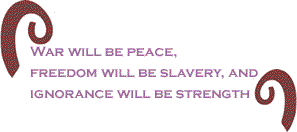 White
American sees slavery; it thinks slavery. It is that word
and those nightmarish images of rape for breeding and for
sport, of whippings for any transgression, of acts of cruelty
and torture, castration and selling a mother’s child. It is
those images, along with the political and economic benefits
of Black servitude to white Americans, to white interests,
to white success, white affirmative action that continued
until the late 1960s, that white America fears.
White
American sees slavery; it thinks slavery. It is that word
and those nightmarish images of rape for breeding and for
sport, of whippings for any transgression, of acts of cruelty
and torture, castration and selling a mother’s child. It is
those images, along with the political and economic benefits
of Black servitude to white Americans, to white interests,
to white success, white affirmative action that continued
until the late 1960s, that white America fears. 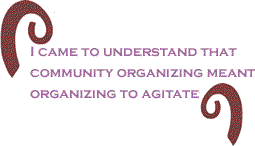 And
now - am I to believe that white Americans are willing to
sending a Black to the White House? Am I to believe that
white Americans want to reconcile with Black Americans? Am
I to believe that white America now wants to talk about white
privilege and discuss ways to really institute equality and
justice? No. No. It is not about love, as Faulkner’s Quentin
Compson reminds us. It is not about love unless it is love
of whiteness, love of self and self-interests. No. We are
not to believe that white America wants to “unite” all Americans
(as Obama’s rhetoric goes) because we know that in this country,
that lingo means white Americans will consume the Black spirit
of our ancestry and thus our future. I am afraid that all
this talk of “unity” and “all Americans” means we Black Americans
will suffer more injustices.
And
now - am I to believe that white Americans are willing to
sending a Black to the White House? Am I to believe that
white Americans want to reconcile with Black Americans? Am
I to believe that white America now wants to talk about white
privilege and discuss ways to really institute equality and
justice? No. No. It is not about love, as Faulkner’s Quentin
Compson reminds us. It is not about love unless it is love
of whiteness, love of self and self-interests. No. We are
not to believe that white America wants to “unite” all Americans
(as Obama’s rhetoric goes) because we know that in this country,
that lingo means white Americans will consume the Black spirit
of our ancestry and thus our future. I am afraid that all
this talk of “unity” and “all Americans” means we Black Americans
will suffer more injustices. 
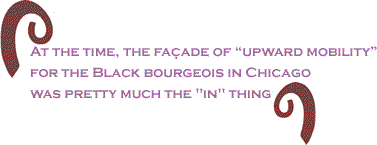

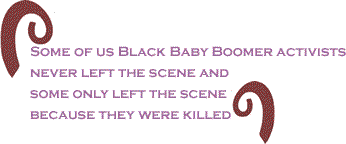 Let’s-make-friends-Obama
came back to Chicago in 1991 and he didn’t “get mad.” In
his memoir,
Let’s-make-friends-Obama
came back to Chicago in 1991 and he didn’t “get mad.” In
his memoir, 





